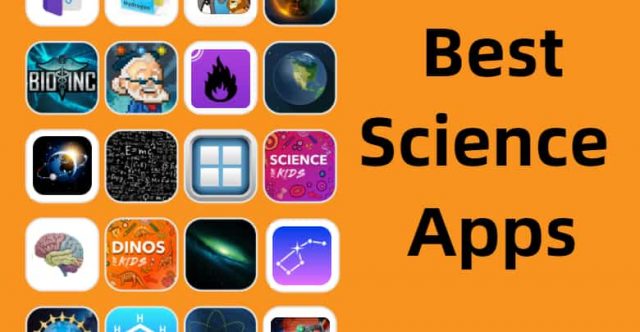The concept of “physics” is all around us, and technically the definition of physics is the science of matter and energy we experience in our everyday lives. We may often take physics for granted, such as how a clothing iron relies on steam (thermodynamics), or how headphones rely on electromagnetism.
Your child might not grow up to dedicate their lives to answering the greatest physics mysteries in our universe, but they should at least know downward slopes make vehicles go faster, and a metal spoon left in a boiling pot of water will be hot because of heat energy transfer.
So armed with these useful physics apps, you and your children can learn a lot of interesting stuff about physics in the world all around us.
For Older Children and HighSchool
1. Short Life
Ever wonder what happens to the human body after falling down a flight of stairs? Short Life teaches you the answer to that burning question in a grotesquely humorous platformer game. You’ll need to navigate hazardous obstacles that will mutilate your characters, such as landmines, spike pits, and fire spouts.
I’m not sure the educational value of this game, but it’s highly entertaining and physics-based, so it provides a bit of mindless entertainment while remaining focused on physics. You can play Short Life and other great .io platformers on Crazy Games.
2. Monster Physics
Ages: 6 – Adult
While presented in cute graphics, Monster Physics is actually a detailed physics simulator that even teens and adults can enjoy. It offers three activities: missions, building, and learning.
In the learning section, children will become familiar with vocabulary terms pertaining to common physics. In build mode, you have access to over 68 kinds of parts to create various contraptions, whether it’s a bridge that can support heavyweights, or helicopter rotors, etc.
3. Brain It On!
Ages: 9 – Adult
More of a game than an educational app, Brain It On! requires that you draw objects to interact with physics-based puzzles. So for example, you might be asked to make a glass of water tip over, and you’ll need to draw an object over it that will fall down and make the glass tip.
It sounds simple but becomes more advanced as levels progress, so young children will enjoy the challenges while learning a bit about gravity, motion, and kinetic energy.
4. Bridge Construction Simulator
Ages: 12+
A realistic 3D bridge construction simulator puts future engineering students to the test, as they’ll be tasked with constructing bridges that can support increasing loads of weight, such as cars and heavy trucks. Things may seem easy when you start out in a city, but once you move to the canyon, valley, and finally mountains it will get hard.
The game is a simulator that makes extensive use of realistic physics. As the car drives through the construction you’ve built you will see it stretch and bend. That way even if you fail you can see the weak points of your construction and use your logic to improve it.
For Toddlers and Children
1. Tinybop Simple Machines
Ages: 4+
This app presents the 6 elements of basic mechanics, which are levers, pulleys, wheel and axles, screws, inclined planes, and wedges. Your child will use these elements to solve fun puzzles, like using wedges and inclined planes to simulate how see-saws and catapults work.
The app is fairly simple for children to understand, but older children can enjoy its sandbox mode gameplay as well, especially since a companion handbook is offered that goes more in-depth with instructions and physics tutorials.
2. Toca Blocks
Ages: 6 – 8
Your child will love building their own unique world and filling it with houses, trains, and obstacle courses in this sandbox playground. It’s a bit like Minecraft for young children,
Toca Blocks lets kids build their own world — everything from obstacle courses, tree houses, and trains.
On the surface, it might look like your child is designing Super Mario levels, but the game actually teaches basic physics and gravity concepts, as well as encouraging creativity.
3. Meet Science: Force And Motion
Ages: 9 – 11
This app teaches your child all about force and motion using characters and graphics that appeal to young children, such as talking animals and flying spaceships.
The app offers an illustrated and detailed glossary, so your child can easily increase their science vocabulary.
Using various minigames and lessons, your child will be guided by quirky characters through the lessons, and each lesson includes a quiz and science experiment suggestions. Overall it’s quite fun and engaging and is part of a suite series of apps from the developer that covers other educational subjects as well. For more check out my website, Techiemag
Table of Contents








